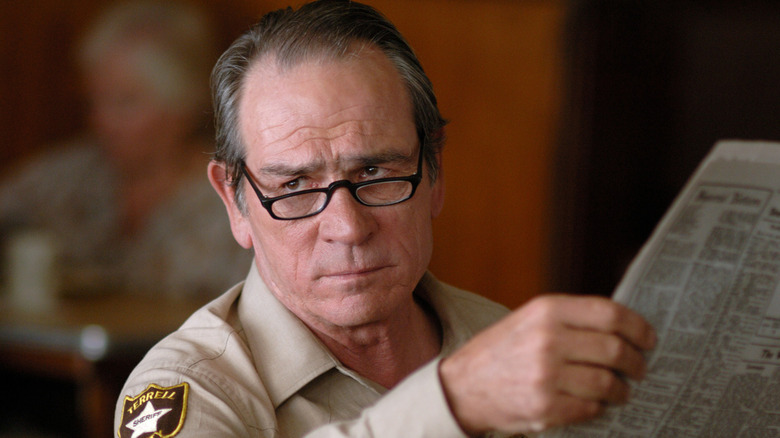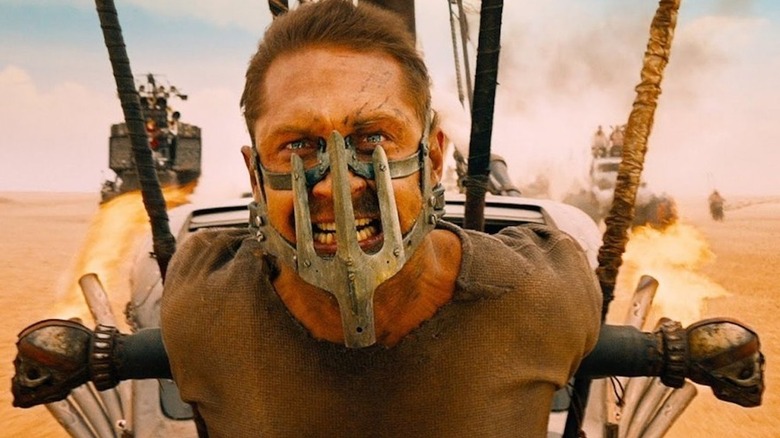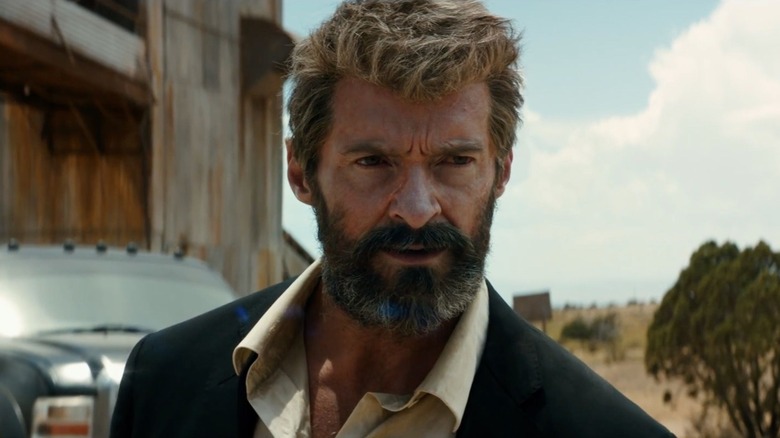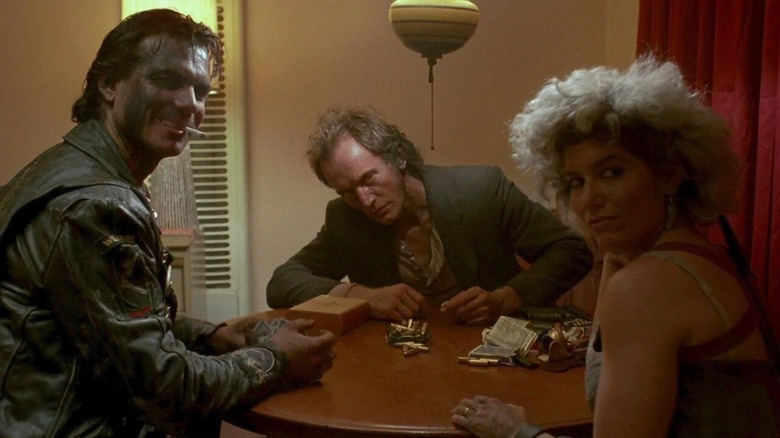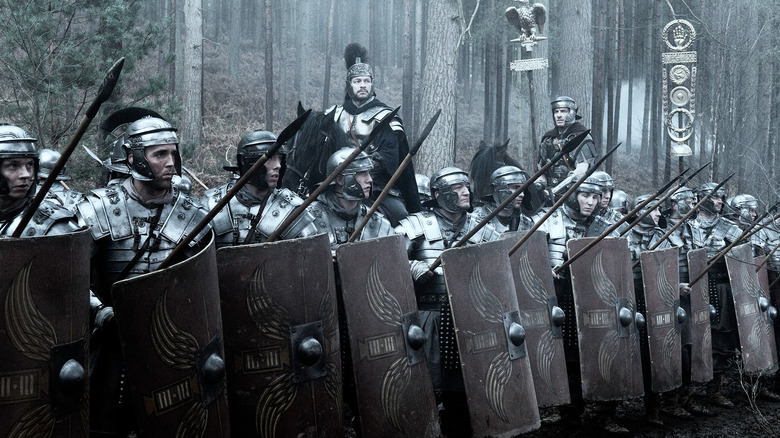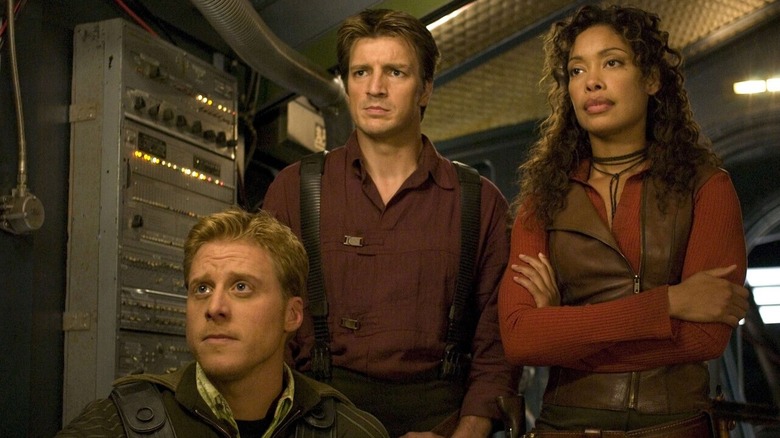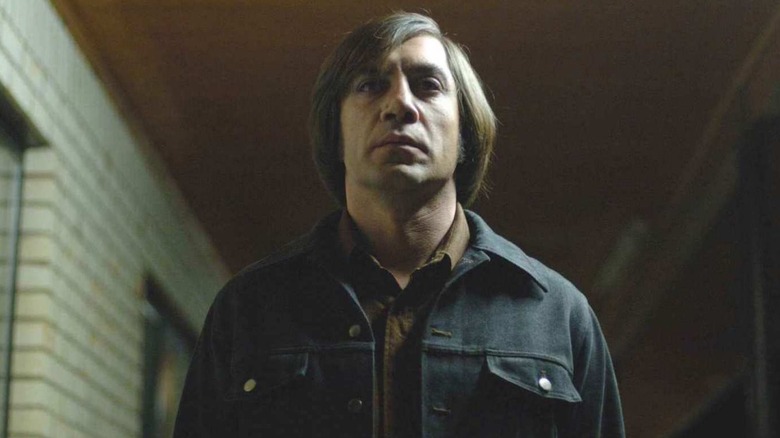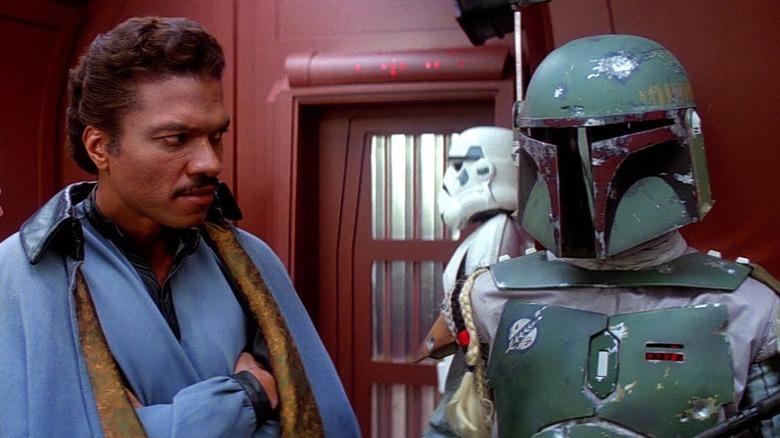The 7 Best Western Movies That Aren't Actually Western Movies
The Western genre is vast and diverse, but there are some common hallmarks that define it. It often tells stories about morally conflicted characters living in a harsh world and forced to do whatever it takes to survive, many of whom are lone-wolf heroes or roll with ragtag gangs. Another common theme is the conflict between order and lawlessness, with many tales revolving around bandits on the run from the sheriffs and bounty hunters. Setting also plays a big part in Westerns, as the genre is synonymous with scenic backdrops and grand vistas.
While Westerns are no longer as common as they were during Hollywood's early-to-mid-20th-century golden age, they have always inspired filmmakers across a variety of genres. The themes and imagery that informs movies about the Old West lend themselves to all types of flicks, some of which take place in contemporary and futuristic settings. These are the movies we will look at here.
For this exercise, we are only considering movies that don't have an Old West setting. Titles like "Cowboys & Aliens," "Ravenous," and "The Burrowers" aren't traditional Westerns due to their horror and sci-fi elements; however, their respective time periods, settings, and stories about cowboys, cavalrymen, and settlers give them a straight-laced horse opera element to some degree. Instead, this list will focus on films that don't seem like Westerns at first glance, but really are when you look beneath the surface. So, without further ado, let's saddle up and look at some of the best ones.
Mad Max: Fury Road is a Western on wheels
George Miller's "Mad Max: Fury Road" ranks among the greatest action movies of all time, mainly due to its impressive stunts and unique depiction of the future. That said, when you take away all of high-octane vehicular carnage and post-apocalyptic mannerisms, it's a good, old-fashioned Western.
Think about it: The entire movie is set against a desert backdrop, similar to many of the horse operas out there. The protagonist, Max Rockatansky (Tom Hardy), is a silent, wandering hero in the vein of The Man with No Name (Clint Eastwood). Meanwhile, the story is about a hero who helps protect innocent people from ruthless bandits — a plot that's present in everything from "Shane" to "The Magnificent Seven."
Miller is also the first to admit that Westerns inspired "Fury Road. "[It's] a Western on wheels," he told the San Diego Comic-Con (via Digital Spy). "Even if it's in the future, we have gone back [to] the more elemental [behaviors]. More medieval. The setting is very spare and clear." Still, wouldn't it be great if more old-school Westerns had bandits playing flaming guitars?
Logan applies revisionist Western themes to a superhero movie
Set in a future where mutants are few and far between, "Logan" follows Hugh Jackman's aging hero as he helps a young girl, Laura (Dafne Keen), and other superpowered beings find a sanctuary called Eden. This puts them on a dangerous road adventure, starting in the vista-laden American South, and culminating with a heartbreaking battle at the Canadian border.
Logan is essentially a last-of-his-kind gunslinger living in a world he no longer understands. This character trope is common in many revisionist Westerns, including "Unforgiven," which is set during the dying days of the Old West and follows an old cowboy who's forced to draw his gun one last time. Mangold was also inspired by "The Cowboys," which tells the story of an old rancher who must team up with teenagers to complete a dangerous cattle drive. However, the biggest influence on "Logan" was the 1953 classic "Shane," which sees the eponymous cowboy protect a family from the local outlaws. The dichotomy of tender moments and brutal violence really struck a chord with Mangold.
All of these movies were direct influences on "Logan," and they're all similar in the sense that they're elegiac Westerns about characters who yearn for a peaceful life they'll never achieve. They're also among the best Westerns you must see before you die, so it's safe to say Mangold mined some incredible flicks for inspiration.
Near Dark is a Western with vampires
Long before Kathryn Bigelow became an Academy Award favorite thanks to movies like "The Hurt Locker" and "Zero Dark Thirty," she was known for genre fare like "Point Break," "Blue Steel," "Strange Days," and "Near Dark." The latter is one of the most genre-defying flicks in her filmography, as it combines Western tropes with horror, action, and a dash of sweet romance. "Near Dark" ranks in the upper echelons of great vampire movies, even though it's overshadowed by more popular flicks.
The story follows a group of traveling vampires as they wander the Midwest, finding victims in honky tonks, and moving on to the next town before sunlight. In this world, vampires are reminiscent of Old West outlaws who are forever on the run from the authorities, but unlike Jesse James and his gang, these criminals have to worry about a pesky thing known as sunlight. This isn't ideal as, not only can it kill them, but the police aren't opposed to conducting raids during the day. It's a lose-lose situation.
Furthermore, the vampires resemble outlaws in the sense that they wield guns, smoke cigarettes, and play cards to pass the time — just like the Old West bandits of yesteryear. During these moments, the characters wouldn't feel out of place in a Sam Peckinpah movie, even if they bite harder than the outlaws in the legendary director's films.
Centurion brings Western sensibilities to a band of Roman soldiers
Neil Marshall is primarily known for "Game of Thrones," "Dog Soldiers" and "The Descent," the latter of which is often hailed as one of the scariest horror movies of all time. The director's genre credentials are well established, but "Centurion" isn't talked about nearly enough — and it should be.
Starring Michael Fassbender and Dominic West, "Centurion" tells the tale of a ragtag band of Ninth Legion soldiers who get trapped behind enemy lines after their fort gets destroyed by the Picts. Thus begins a desperate adventure as the platoon tries to survive the deadly situation they find themselves in.
When most people think of movies about Roman warriors, "Gladiator" and "Spartacus" immediately spring to mind. While those flicks are certainly worth celebrating, "Centurion" eschews these epic qualities in favor of a low-budget Western-inspired chase movie. The film takes cues from "Butch Cassidy and the Sundance Kid" and John Ford's cavalry movies, such as "Rio Grande" and "She Wore a Yellow Ribbon," and it doesn't skimp on the bloodletting either.
Serenity and Firefly brought cowboys to space
Despite not producing many episodes, Joss Whedon's "Firefly" is one of the most binge-worthy sci-fi shows of all time. The series takes place in the aftermath of a devastating civil war that rocked the universe, and follows a group of rogues on a cargo ship as they travel the frontier taking on any job that pays. Obviously, things don't always go according to plan, forcing our heroes to contend with the law, bounty hunters, and all manner of dangerous individuals. It's a plot lifted straight from a Western, and the series wears its influences on its sleeves.
Whedon was inspired to make "Firefly" after reading Michael Shaara's "The Killer Angels," which chronicles a group of soldiers during the Battle of Gettysburg. The "Buffy the Vampire Slayer" creator was interested in telling a story about people who get left behind during conflicts and the socio-political dynamics that led to them, and this allowed him to create a beloved group of fictional underdog outlaws with strong morals. Elsewhere, Whedon was inspired by the gritty Westerns of the 1970s, particularly the ones that explore stories about aimless wanderers looking for a place to call home.
Unfortunately, "Firefly" was canceled way too soon, but it became such a cult sensation that the movie "Serenity" was made to wrap it up in a satisfying manner. While the franchise hasn't experienced the widespread popularity many sci-fi fans feel it deserves, there's no denying that it's an awesome space-Western saga.
No Country for Old Men is a neo-western slasher movie
Author Cormac McCarthy is synonymous with some of the bloodiest and bleakest Western novels out there, with "Blood Meridian" arguably being his most straight-up genre effort. However, many of the same twisted sensibilities are present in "No Country for Old Men," which the Coen brothers brought to the screen in 2007.
This one tells the story of Llewelyn Moss (Josh Brolin), an everyday hunter who stumbles across a bloody crime scene in the middle of the desert and makes off with the loot. Unfortunately, he doesn't make a clean escape, as the stone-cold evil hitman Anton Chigurh (Javier Bardem) tracks him from Texas to Mexico, leaving a trail of bodies in his wake along the way.
At its core, "No Country for Old Men" is a classic tale of an outlaw being chased by a bounty hunter. However, the villain isn't unlike Jason Voorhees and Michael Myers, as he spends the movie hunting down his prey with visceral intent — and there's no escaping him.
Star Wars: The Empire Strikes Back is the definitive space-Western
It's difficult to place the Star Wars franchise in a single genre, as George Lucas' space saga was inspired by everything from pulpy swashbuckling serials to the samurai films of Akira Kurosawa. However, the DNA of the Old West ripples through its veins, and it's especially notable in "The Empire Strikes Back."
The sequel to "Star Wars: A New Hope" brings back charming bandits like Han Solo (Harrison Ford) and features stunning vistas that wouldn't feel out of place in a John Ford movie. However, it's also the film that introduced Boba Fett (Jeremy Bulloch), the silent bounty hunter who was modeled after Clint Eastwood's antihero in Sergio Leone's Dollars trilogy. Elsewhere, the Mos Eisley Cantina on Tatooine could easily be a saloon in the Old West, as it's known for hosting some good, old-fashioned bar brawls — a hallmark of cowboy movies.
Star Wars has since resurrected overt Western influences on shows like "The Mandalorian," which also features a mysterious lone-wolf antihero and even boasts episodes that pay homage to "The Magnificent Seven," "Red River," and "The Wild Bunch." Still, "The Empire Strikes Back" will probably go down in history as being more iconic than the Disney+ series, as it's captured the pop culture imagination for decades and shows no signs of slowing down.
